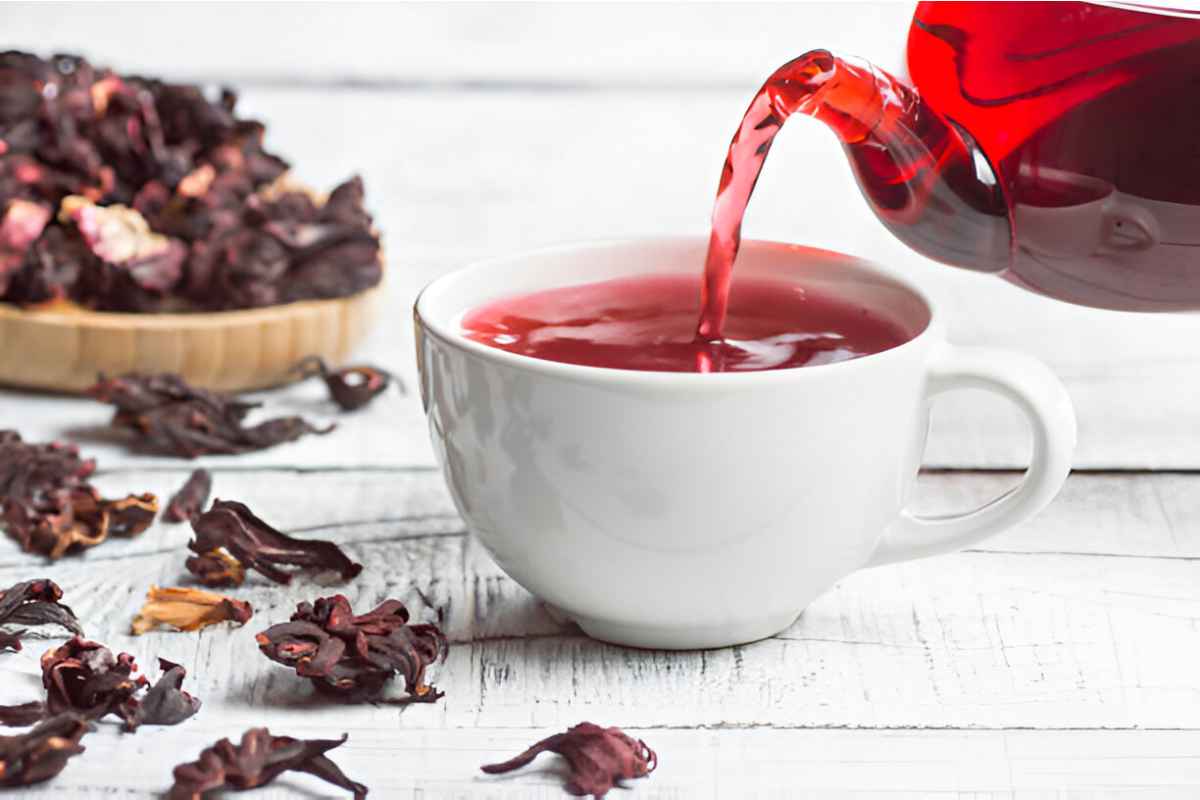Bissap or Hibiscus flower Tea
Hibiscus tea, but it has nothing to do with tea, like mate or rooibos. Instead, this tea is an infusion of hibiscus consumed since the dawn. But let’s live for a minute on the magic plant of tea, this famous hibiscus. Hibiscus, or hibiscus by its Latin name, is a plant of the Malvaceae family, just like cotton and combo. It is also called Sorrel of Guinea because it grows mainly in this West African country.
The preparation of this Drink dates back thousands of years. Traces dating back 6,000 years have been found in Sudan, and the Egyptians enjoyed this beverage on the banks of the Nile at the time of the pharaohs.
Thus, this tea is one of the ancient drinks, just like the beneficial fruit kefir. I add the adjective helpful to fruit kefir because it is prosperous for the body. But hibiscus tea also has real benefits for our health. To give meaning to the title of this recipe, although exaggerated, I grant you, here are some of the names attributed to this Drink. By the way, I forgot to warn you. Hibiscus tea consumes in many countries.
Here are the different names of this infusion of Hibiscus flowers
- Karkade in Egypt, North Africa, Sudan
- Bissap in the Wolof language in Senegal
- Karakandji in the Central African Republic
- Folere in Cameroon
- Flora of Jamaica in Mexico
- Da bilenni au Mali
- Zobo in Nigeria
- Ngai Ngai au Congo
- Rose tea from Abyssinia in Ethiopia.
- Rosella in Australia
Gooseberry pays (name for the hibiscus) to Guadeloupe and Martinique. Moreover, the country gooseberry is the queen of end-of-year celebrations. No Christmas without hibiscus, whatever the form. From tea syrup to the many desserts.
I have not classified the list in alphabetical order for you because bissap and karkadé are the two most used names for hibiscus tea. But if you look crazy on the web, you will come across the plant and the hibiscus tea. For example, the crazy.
On the other hand, while research this traditional Drink, I found that Egyptians drink karkadé hot despite its tangy taste, where it is often eats very cold. Here is a recipe that I would have liked to put in my article on edible flowers, but unfortunately, I did not have the opportunity to pick the hibiscus.
Today, I give you the basic recipe for hibiscus tea; it is sometimes flavored in Mauritania with mint leaves. The additional plants are often lemon balm, orange blossom, lemon, fresh ginger, nutmeg, cinnamon, lemongrass or even basil. A long drink can even created by adding sparkling water to the tea with ‘hibiscus. As you can see, everyone develops their recipe(s).
The properties of Hibiscus Tea
The list of bissap benefits is long, very long. You could call hibiscus tea a medicinal drink or health food. Even if I stray from the recipe, it seems essential to me to note the most apparent virtues of hibiscus tea.
First of all, fights high blood pressure. According to an American study conducted by Tufts University on 65 men and women between the ages of 30 and 70, drinking 3 cups of tea (bissap juice) daily for at least six weeks helps reduce systolic blood pressure. more than 7%. “We found that three cups of tea a day significantly reduced systolic blood pressure in the group of people who drank it daily for six weeks, compared to a placebo drink containing artificial flavour and colouring of hibiscus. ‘hibiscus’ according to the University.
- Then, the tartaric acid contained in the plant gives hibiscus tea anti-inflammatory properties. Karkade relieves inflammation of the skin and urinary tract.
- According to a study from the University of Baghdad, published in October 2015, drinking tea, through its anti-inflammatory properties, treats arthritis problems.
- Then, more succinctly, tea is antiseptic, carminative, anti-microbial and slightly laxative.
- It also indicates to treat diabetes, liver and gallbladder. In addition, urinary antiseptic and diuretic tea is slimming.
- Finally, teas are refreshing rich in vitamin C, iron, potassium and sodium.
- On the emotional level, Abyssinian rose tea fights against depressive states.


